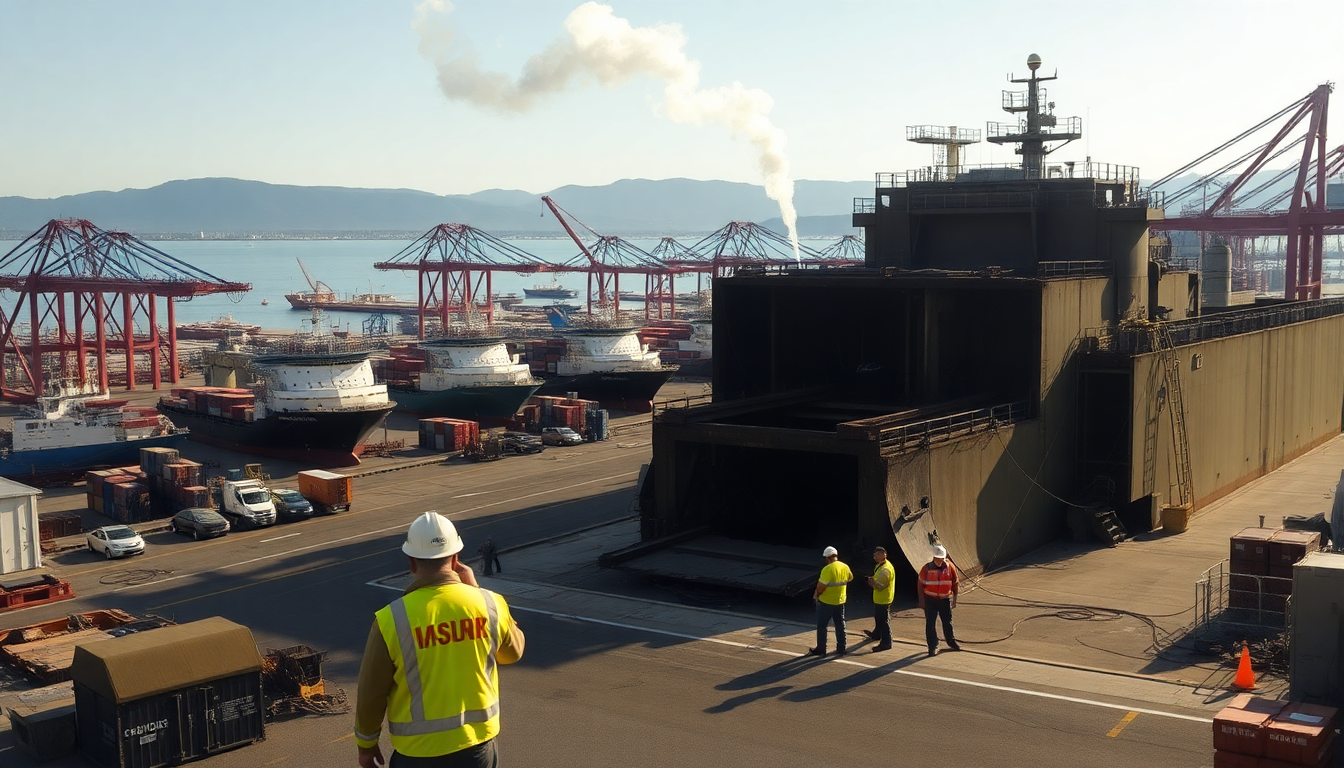Table of Contents
The recent fire at Westshore Terminals has sparked significant concerns about the operations at Canada’s busiest coal export terminal. On Saturday, flames broke out on a shiploader servicing Berth 1, forcing a temporary shutdown of this crucial facility. Thankfully, firefighters acted quickly, extinguishing the blaze without any injuries or structural damage. But what does this mean for operations moving forward? Let’s take a closer look.
The Incident: What Happened?
According to an update from the company, the fire occurred on a shiploader that’s essential for loading operations at Berth 1. Firefighting crews were on the scene in no time, successfully containing the fire. Although there were no injuries or structural issues, early assessments suggest that repairs could take around ten weeks before Berth 1 can return to full capacity. So, what does this mean for coal exports?
While Berth 2 is still operational, the shutdown of Berth 1 is expected to significantly impact throughput. Projections for the year now indicate that coal handled at the terminal may drop from an estimated 26 million tonnes to somewhere between 24 and 24.5 million tonnes. This downturn really underscores the pivotal role that Berth 1 has in the overall operations at Westshore Terminals, which primarily serves the export market for coal sourced from Canada and the western United States.
Operational Adjustments and Customer Impact
In response to the incident, Westshore Terminals has reassured its customers that operations will continue as usual at Berth 2. The company is dedicated to working closely with clients and railways to minimize any disruptions caused by the temporary closure of Berth 1. Isn’t it refreshing to see proactive measures being taken to reduce the impact on coal shipments, which are so vital for maintaining supply chains and fulfilling export commitments?
As the leading coal export terminal in Canada, the efficiency and reliability of Westshore’s operations are crucial for everyone involved in the industry. Right now, the company is conducting a detailed inspection to determine the necessary repairs and provide an updated timeline for when Berth 1 will be back in action. This kind of proactive communication is essential for managing expectations and planning ahead.
Long-term Consequences and Future Outlook
The fire at Westshore Terminals not only highlights the vulnerabilities inherent in industrial operations but also raises questions about the long-term outlook for coal exports from the region. With throughput expected to decline, stakeholders will need to assess the implications for market dynamics, pricing strategies, and supply levels in the upcoming months. How will these changes affect the market?
This incident is also a reminder of the importance of operational resilience and the ability to bounce back quickly from unexpected events. As the company navigates this challenging situation, it will be crucial to implement strategies that enhance operational safety and efficiency to prevent similar incidents in the future. The resilience of Westshore Terminals is about to be put to the test, but with a solid recovery plan in place, the terminal aims to maintain its status as a key player in the coal export market. Will they rise to the occasion? Only time will tell.


